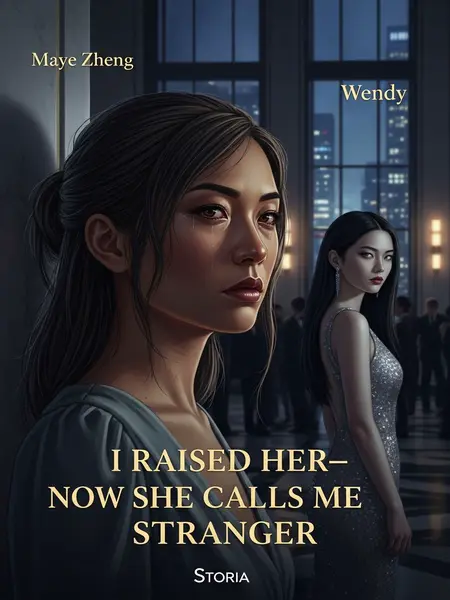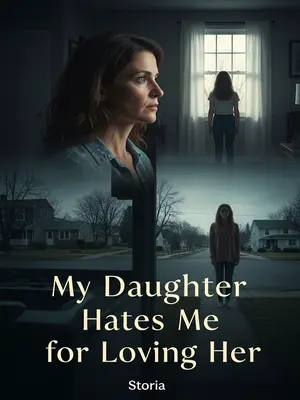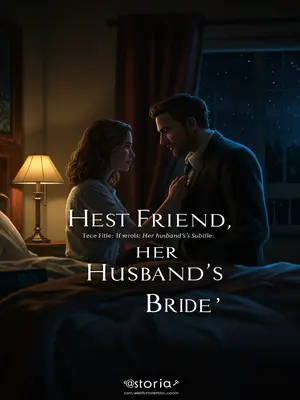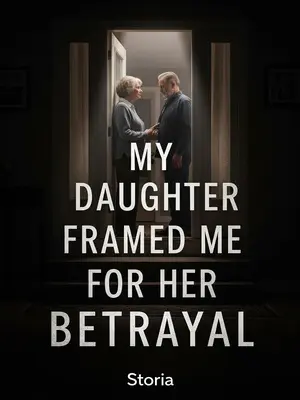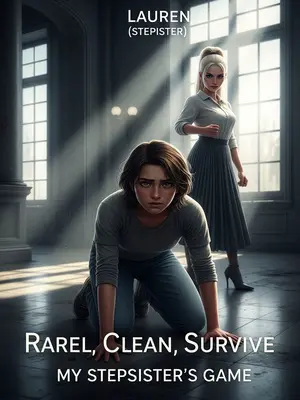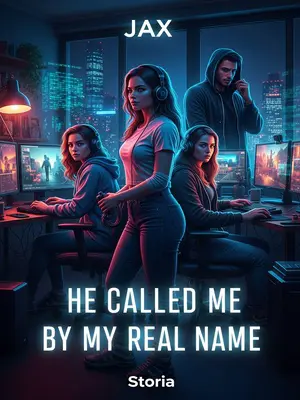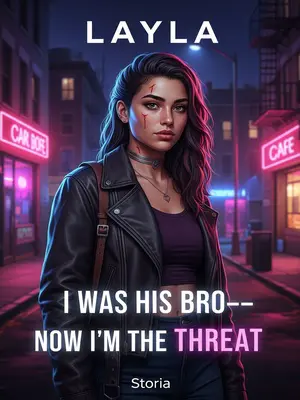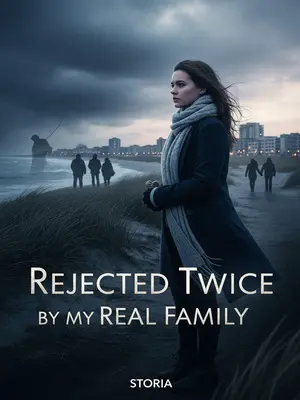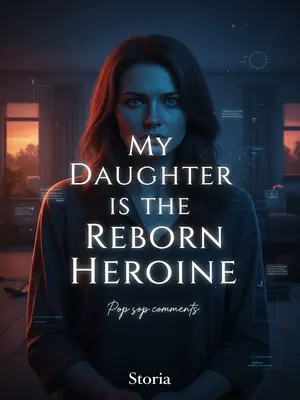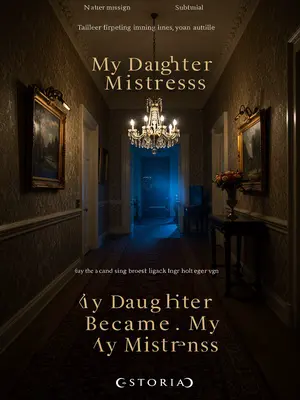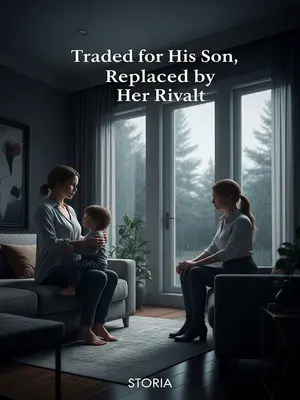Chapter 1: Fever, Betrayal, and Old Scars
I tested positive for COVID. My whole body ached—every muscle, every joint—and for a moment, I just lay there, letting the misery wash over me. Of course, my little sister had stockpiled enough Advil to open her own pharmacy. Figures.
The air in my shoebox apartment felt thick and stifling. The walls pressed in as I stared at my phone, waiting for her reply. Each minute dragged, the ache in my bones growing sharper. Outside, the city was wrapped in a muted hush—just the distant wail of sirens, the low hum of traffic, and the faint scent of stale takeout. I hated this waiting.
It took her forever to reply:
"Even though you paid for it, you want it back now?"
"None of your friends or coworkers are willing to share some with you?"
"Fine, I’ll just Venmo you. Whatever."
Her words hit harder than the fever. I stared at the screen, jaw clenched. Was I angry, or just too tired to care? The bitterness in her texts stung. She’d always been sharp around the edges, but it was like she’d wiped away every memory of me helping her out.
Later, she ended up homeless, begging me for a place to stay.
Funny how things come around. I remembered her standing outside my door, shivering in the cold, makeup streaked from crying, clutching a trash bag of her stuff. I almost didn’t open the door. But old habits die hard.
My sister always had terrible cramps and relied on Advil to get through the worst days.
I used to watch her double over at the kitchen table, clutching her stomach, her face pale as milk. She’d pop a couple Advil and try to pretend she was fine, but I could see the pain flickering in her eyes. It always left me feeling helpless.
The last time we had dinner, she complained her paycheck was too low. She’d just paid rent and only had enough left for food.
We sat in a sticky Applebee’s booth—the kind with ripped vinyl and a lingering smell of fried onions. She poked at her salad, sighing about how the city chews you up and spits you out, how her bank account was basically on life support.
I said, “Your health matters most. Go buy it, I’ll pay you back.”
She didn’t hesitate—went straight to the Walgreens across the street.
I watched her from the window, coat flapping in the wind, head high like she was on a mission. The harsh fluorescent lights made her look almost ghostly, but she moved with purpose.
Watching her carry out ten boxes of Advil, I couldn’t help a crooked smile.
A dry little laugh escaped me. Only Wendy would treat my offer like a shopping spree. The plastic bag looked ready to split, and she strutted out like she’d won the lottery.
“Do you really need that much?”
She grinned and shrugged. “I’ve got a great big sister who’ll pay for it, so why not?”
She winked, flipping her hair back. For a second, I almost admired her nerve. She never worried about tomorrow—just grabbed whatever she could today.
I never thought the Advil she’d stockpiled would become so precious.
It’s wild, the things you never imagine running out of. I’d always thought Advil was just… there. Turns out, in a crisis, even the basics turn to gold.
I caught it—a raging fever, 103°F. My whole body felt like it had been through medieval torture.
I lay there, drenched in sweat, every inch of me aching. The ceiling fan spun lazily overhead, useless. My teeth chattered, thoughts fuzzing at the edges. It was like being trapped in a fever dream, the world outside fading into static.
The pharmacies were stripped bare—no Advil anywhere. Not on Amazon either, and even if I ordered, who knew when it’d arrive?
I checked every app, every website, called every CVS and Rite Aid within ten miles. All I got was, “Sorry, we’re out.” My hands shook as I scrolled through eBay listings, where a single box cost as much as a steakhouse meal.
That’s when I remembered the medicine my sister had.
I could see those ten boxes, stacked in her cabinet, probably gathering dust. Had she even touched them? Or were they just sitting there, a silent monument to her greed?
I even planned ahead: I’d tell her to bike over—no rideshare, no subway—just leave the meds at my door, no contact. Take every precaution.
I rehearsed the message in my head, trying to sound casual, not desperate. “Hey, can you just drop it at my door? No need to come in—just be safe.” I didn’t want her to catch it, but I needed her help.
I drifted in and out of sleep twice before finally getting a message from her.
I kept waking up, checking my phone, hoping for a reply—nothing. Each time, I’d shiver, tug the covers tighter, and wish the pain away. When her message finally came, it felt like a lifeline—until I read it.
Wendy: “It was just a little of your money. You’re not actually trying to get it back now, are you?”
Me: “I just need one box.”
Wendy: “None of your friends or coworkers will share any? Even though I haven’t caught it, I need to keep some just in case.”
My hands shook with anger as I read that. Hoarse, I sent a voice message back, cursing:
“Ten boxes of Advil—are you planning to eat it for every meal?”
My voice cracked, raw from the fever. I barely recognized myself. It felt good to let the anger out, even if I knew it wouldn’t change a thing.
She sent back several voice messages, her voice as sweet and clear as ever.
“Sis, I’m not like you, living alone. I have two roommates. If they catch it, I need to help them first, right?”
“I’ll just Venmo you back, whatever.”
She sent a transfer request—she even rounded down the amount.
I curled up in my shabby studio, feeling like I was about to die.
I pressed my forehead to the cool window, watching the city lights blur. My body was on fire, but my heart felt colder than ever. How did I end up here—sick, alone, begging my own sister for help?
Wendy is seven years younger than me.
She was always the baby, the one everyone said I should look out for. I remembered her as a little girl, hair in wild pigtails, tagging after me, desperate to be included.
We grew up in rural Ohio. The year I took the tests to get into the best high school in the county, my parents had a huge fight one night and smashed the TV, waking all the neighbors.
The old house shook with their shouting. I remember the TV screen shattering, glass sparkling across the carpet. Porch lights flicked on one by one, neighbors peeking out to see what was going on. That kind of night sticks with you.
Wendy cried her eyes out. I couldn’t calm our parents, so all I could do was hold my sister and hide far away.
We huddled together in the dark hallway, my arms wrapped tight around her shaking shoulders. I whispered promises I couldn’t keep, hoping my own fear didn’t show.
The next day, Mom was gone. She never came back.
The house felt emptier than ever. Her perfume still hung in the bathroom, her coffee mug on the counter. But she was just… gone.
The neighbors said… she ran away.
People whispered at the grocery store, eyes full of pity and curiosity. Rumors swirled—she’d run off with a truck driver, she couldn’t take it anymore. Nobody really knew.
Dad sat on the steps, eyes bloodshot, staring helplessly at the mess in our house.
He looked smaller than I’d ever seen him—shoulders slumped, hands shaking as he lit cigarette after cigarette. The air was thick with smoke and silence.
“Dad, where did Mom go?”
Wendy tugged at Dad’s sleeve.
Her voice was so small, barely more than a whisper. She looked up at him, hopeful, as if he could make everything okay again.
Seeing her face, Dad’s expression twisted. He turned, grabbed a kitchen knife, and charged at her. “I’ll kill you, you little bastard!”
Time stopped. The knife flashed, and for a second, I thought he might really do it. My heart pounded so loud I thought it would explode.
Wendy screamed and hid behind me.
Her fingers dug into my arm, nails biting through my skin. I stood my ground, even though my legs felt like jelly.
I was terrified too, but I was the older sister. No matter how scared I was, I had to protect her.
I tried to sound brave, but my voice shook. “Don’t hurt her, Dad. Please.”
Crying, I said, “Dad, don’t kill us. Mom will come back…”
The words tumbled out, desperate and wild. I didn’t believe them, but I needed him to stop.
Dad froze. The knife clattered to the floor. He pulled me into his arms.
He squeezed me so tight I could barely breathe. For a moment, I thought maybe things would be okay.
“Kid, your mom left to be with someone else. From now on, it’s just the two of us.”
His voice was rough, almost broken. I could feel the pain behind every word.
“And my sister…”
“She’s not your sister.” Dad turned away, glaring at Wendy. “This isn’t your home anymore. Get out.”
His words sliced through the air like a blade. Wendy’s face crumpled, and I felt my own heart break.
She cried even harder, terrified.
Her sobs echoed through the empty house, raw and unfiltered. I wanted to shield her from everything, but I couldn’t.
That’s when I understood.
Wendy wasn’t Dad’s daughter. She was Mom’s child with another man.
The truth hit me like a punch to the gut. Suddenly, it all made sense—the way Dad looked at her, the way he barely spoke to her unless he was angry.
But she was still my little sister…
Blood or not, I’d always thought of her that way. I couldn’t just let her go.
She was only nine. She didn’t understand anything. Mom was gone. If she got kicked out, she wouldn’t survive.
She clung to me, eyes wide with fear, shivering in her thin pajamas. I knew I couldn’t leave her behind.
But Dad insisted. I had no choice but to leave with her.
He yelled at us to get out, his voice echoing down the block. I packed a bag with whatever I could grab—some clothes, a box of crackers, a flashlight. Wendy held my hand the whole time.
It was the dead of winter, sleet and snow falling, the streets empty.
The wind whipped through the trees, rattling the windows. Our breath came out in white puffs, my fingers numb as we trudged down the icy sidewalk. The world felt huge and uncaring.
Her cheeks were bright red from the cold. I took off my coat and wrapped her up, holding her for warmth.
She looked up at me, tears frozen on her lashes. “Don’t leave me,” she whispered. I promised I wouldn’t.
Dad kept coming out and yelling at us.
His voice echoed across the yard, but I didn’t flinch. I’d made up my mind. If Wendy was out, I was out too.
I was stubborn. If we went back, we’d go together. If we left, we’d leave together.
I dug my heels into the snow, daring him to make me choose. He finally slammed the door, leaving us alone under the streetlight.
That’s how Wendy and I went back home.
Eventually, he let us back in, but things were never the same. The house was colder, the silences longer. We stuck together, two against the world.
Her life at home was tough.
She tiptoed around Dad, flinched at every loud noise. I watched her shrink into herself, growing quieter with every day.
Dad wouldn’t pay for her schooling. I got on my knees and begged him to let her finish middle school.
I remember kneeling on the linoleum, hands clasped, tears streaming down my face. “Please, Dad. She deserves a chance.”
He wouldn’t buy her anything, so she wore my old clothes and used my old backpack.
She looked ridiculous in my hand-me-downs—pants too long, shirts too baggy. But she never complained, just rolled up the sleeves and kept going.
She struggled with math, so I patiently tutored her, bit by bit.
We’d sit at the kitchen table for hours, her brow furrowed. I’d draw diagrams, make up silly rhymes to help her remember formulas. Sometimes she’d get frustrated and throw her pencil, but I never gave up on her.
She was bullied at school. Her homeroom teacher had once taught me, so I asked the teacher to look out for her.
I wrote a note, slipped it into the teacher’s mailbox. The bullying stopped the next day. I never told Wendy how it happened—just let her think things got better on their own.
I saved my lunch money and secretly gave it to her.
Most days, I’d skip lunch and hand her a crumpled five-dollar bill. She’d protest, but I’d insist. “You need it more than I do.”
Later, she got into the county’s top high school. Dad refused to pay a dime toward it, no matter what.
He slammed the door in my face when I asked. Said she wasn’t his problem.
Luckily, by then I was in college.
I was working two jobs, barely scraping by, but I was determined to help her. I’d do anything to keep her in school.
She didn’t want to live at home. I sent her all my scholarship money and paychecks, making sure she finished high school and got into college.
I skipped parties, wore the same old jeans for years, hustled every weekend. When her acceptance letter came, I cried harder than she did.
I bragged to everyone: I raised a college student.
My friends teased me, called me “Mom.” I didn’t care. I was proud of her, even if she never seemed to notice.
Because of everything we’d been through—her helplessness, our shared childhood—I got used to caring for her.
It was second nature—checking in, sending her money, making sure she had what she needed. I never questioned it.
I never thought about whether she’d remember my kindness or repay me one day.
I figured that’s what family did. You just… gave, and hoped it was enough.
We’re sisters. Why talk about repayment?
It sounded cold even thinking about it. I told myself, “She’ll understand someday.”
I drifted off, thinking I’d slept for ages. When I woke, it was still daylight—only two hours had passed.
I woke up drenched in sweat, the sheets twisted around me. The clock on my nightstand barely seemed to move. My head throbbed, my tongue felt like sandpaper.
My sweat had soaked the sheets.
I peeled them off, tossing them in the corner. Everything smelled faintly of sickness and regret.
I hadn’t eaten all day, but I didn’t want food. The pain was driving me mad.
The fridge hummed quietly, but I couldn’t bring myself to get up. Every muscle screamed in protest.
With every fresh wave of pain, I felt more disappointed in Wendy.
I kept replaying our conversations in my head, wondering where things had gone wrong. The more I thought about it, the angrier I got.
I wondered, if I died like this, how would she feel?
Would she even care? Or just shrug and move on?
I swore to myself: I’d never be good to her again.
I meant it this time. No more money, no more favors, no more late-night pep talks.
She wasn’t worth it. She didn’t deserve it!
I let that thought settle in my chest, heavy but strangely freeing.
